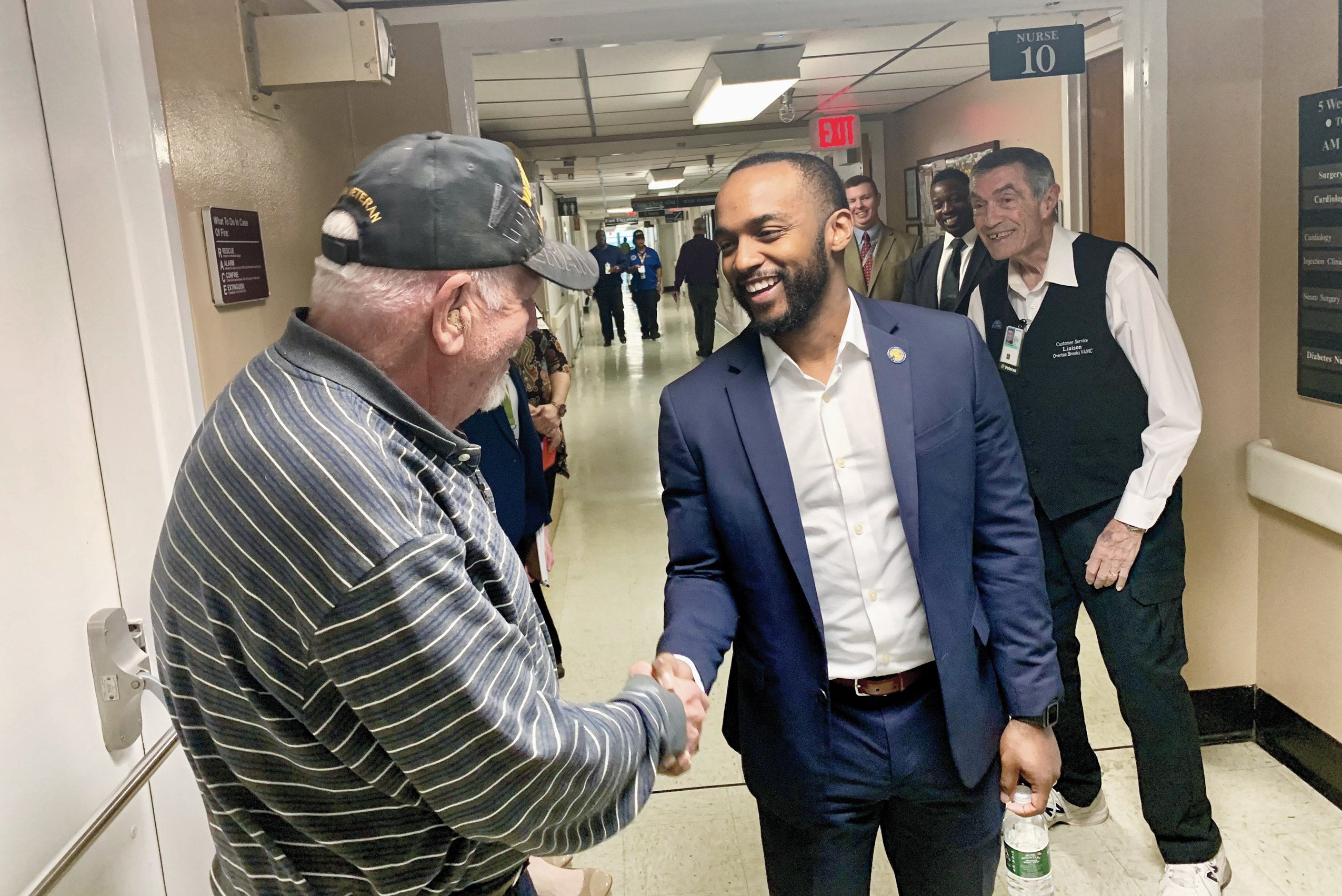Adrian Perkins ’18 got a gift from a colleague at his new job: a unicorn that now sits on his desk. It’s a reminder of the unique path he took to that job, from growing up in a single-parent household in the Cedar Grove neighborhood of Shreveport, Louisiana, where he sometimes slept under his bed at night because of drive-by shootings; to the war zones of Iraq and Afghanistan, where he earned a Bronze Star; to Harvard Law School; and then back to where his life began. He returned to Shreveport this time as perhaps its most prominent citizen, elected mayor in December at age 33, seeking to turn around a struggling city of about 200,000 people that faces challenges he believes can be surmounted, as he has overcome obstacles in his own life.
Perkins launched his run for mayor last year during his 3L year at HLS. When he started law school, he expected he would practice law and indeed had an offer from Sidley Austin. But the allure of going home proved too strong, particularly at a time when his city was losing jobs and experiencing a high crime rate. At the same time, he had to convince the electorate that he could lead the city despite his relative youth and lack of government experience. He campaigned on making Shreveport safer and leveraging technology to improve city services and the economy (while an HLS student, he wrote an article for Wired magazine on luring tech companies to smaller cities). He also pointed to his life experience: the first African American class president at West Point, eight years serving in the Army, student government president at Harvard Law, and a deep history with and commitment to Shreveport. He won the election with 64% of the vote.
“My entire story was geared toward leading the city out of the trends that it was in, and pushing it into the 21st century,” he says.
His story shows that progress can come by adapting to new circumstances. That ability arose in him early in life, at age 4, when his father left his family, and his mother, Johnny, started raising him and his two older brothers herself. She has served as an example for Perkins, who praises her strength, her moral standards and her zeal for education. He was educated in a more affluent part of the city as part of a minority enrichment program, which he said helped him learn about traversing different worlds, something he also did as a student at HLS with a different background from that of most others there.
As a junior in high school, Perkins watched the twin towers fall and became determined to join the military. After West Point, his first deployment was to Iraq, where he was a 23-year-old platoon leader of 30 men. He still remembers his first patrol shortly after arriving at Baghdad under mortar fire. He rode in the lead vehicle, and when he got out to secure the area, he was afraid, he acknowledges. But he did it, and for his men and for himself, that was what counted.
“I knew the men were watching me. I knew it was what I signed up for. And I knew it was a commitment to my country. And I put my foot down, and then I put my next foot down. And I just put one foot in front of the other until those fears went away.”
He learned lessons from his military experience that he has brought to the mayor’s office. People want leaders who wouldn’t ask them to do anything they wouldn’t be willing to do themselves, he says. And people want leaders who genuinely care about their well-being, no matter what the situation is.
Perkins has another important perspective that he can see, literally, from his mayor’s office. Across the street is the office where his mother still works, 40 years now for the electric company. It’s funny, he says—she seemed to expect that he would get into HLS and even become mayor. That’s because she has always led him to believe he can accomplish whatever he wants. And now he goes back to his old neighborhood and speaks to kids who are faced with some of the same challenges that he faced not that long ago, and he tells them to believe the same thing.
